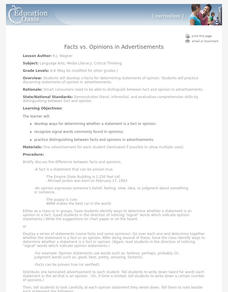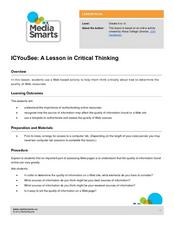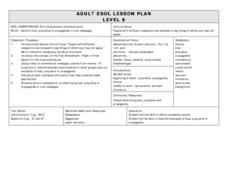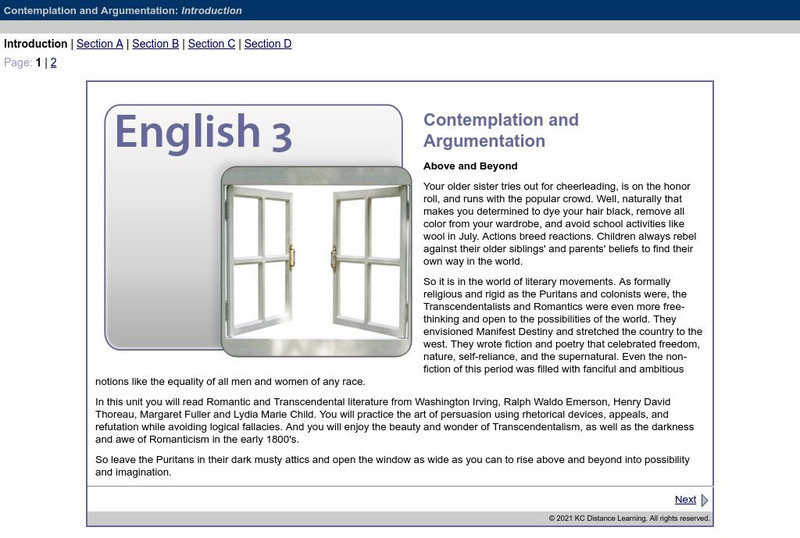Curated OER
Fact vs. Opinion (Part II)
How can you tell the difference between fact and opinion? Using newspapers, learners determine which articles contain statements of fact, and which articles reflect the writer's opinion. The lesson plan includes a discussion format and a...
Curated OER
Facts vs. Opinions in Ads
Students develop criteria for determining statements of opinion. They practice discerning statements of opinions in advertisements.
Curated OER
Media Literacy Vocabulary Lesson
Students participate in an introductory lesson that focuses on communication. The two types of extrapersonal and interpersonal are covered. The lesson uses questions in order to guide the class discussion and writing responses.
Curated OER
Don't Let the Earth Down
Writing a persuasive argument starts with a clear thesis. Using this resource, your class will write a persuasive paper on a conservation issue. They will then transform their argument into a 30-second public service announcement. If...
Curated OER
ICYouSee: A Lesson in Critical Thinking
Stress the importance of authenticating online resources and understanding the sources of websites' information with this activity. Using a Web-based activity, the lesson prompts young learners to think critically about determining the...
Curated OER
Bias vs. Perspective: An Inevitable Aspect of Journalism?
Students explore the types of media that U.S. teens prefer the ways in which viewers identify and account for journalistic bias. They explore the ways in which media shapes one's opinion or affects their judgment.
Curated OER
T-Charts
In this literacy worksheet, students use the t-charts that are designed for the specific activity. The sheet is a teacher's guide to making them.
Curated OER
Your Politician: Myth vs. Reality
Students adopt a public official, research how they spend their time, and define the actual duties associated with the job. They sort perceptions about the job into myths and realities, and analyze political cartoons involving their...
Curated OER
Fossil Fuels vs. Alternative Fueling Systems
Fourth graders brainstorm the differences between the fossil fuels that people use in their transportation now and what they could use to minimize greenhouse gas emissions. They use a variety of techniques from webquests to writing...
Curated OER
"I Don't Pay Attention to Advertisements? (At least I don't think so?)"
Sixth graders study eight persuasive techniques that occur in a variety of media types. They write a persuasive essay and present it to the class. They create a "new product" for which they produce an advertisement using persuasive...
Curated OER
Agree To Disagree
Young scholars discover their own talents and preferences and determine how they apply to the world of work with a group activity. They express their choice and discuss their positions.
Department of Defense
Do Dea: Contemplation and Argumentation
In this self-guided unit, you will read Romantic and Transcendental literature and you will practice the art of persuasion using rhetorical devices, appeals, and refutation while avoiding logical fallacies. By the end of the unit, you...













